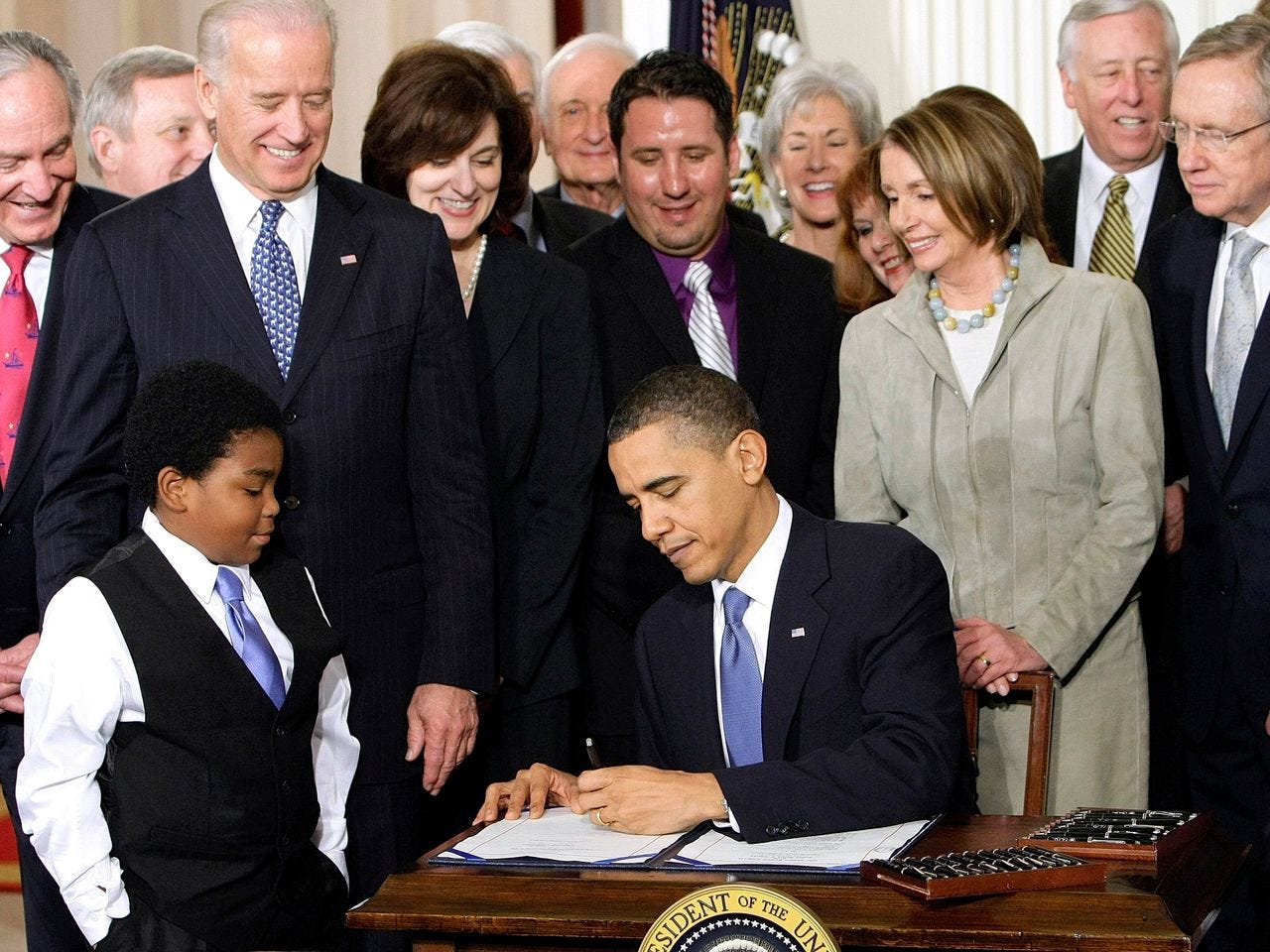10 Reasons Why Repealing Health Reform Would Harm Children
by Bruce Lesley and Lisa Shapiro
While there are a wide array of opinions about the impact of health care reform, it is indisputable that our nation's children are better off today because of the new law. Why? Here are 10 key reasons.
As is the ritual in Washington every two years, this week Congress began a new legislative session with Republican John Boehner (R-OH) holding the Speaker's gavel. In remarks opening the 112th Session, Speaker Boehner recognized the enormous challenges of our times, including the staggering national unemployment rate and mounting federal budget deficit. Boehner also acknowledged that health care costs are continuing to rise for families and small businesses. Boehner told the new class of lawmakers, "Hard work and tough decisions will be required of the 112th Congress. No longer can we fall short."
However, in light of this call to action it is disappointing that repealing health reform is at the top of Speaker Boehner's agenda for the new Congress. According to the non-partisan Congressional Budget Office, health reform will not only reduce the budget deficit in the next ten years by more than $100 billion, it also will ensure that an estimated 32 million Americans who are uninsured or underinsured can get high quality, affordable health coverage they can rely on. Investing in our children's health is investing in America's future. When we help children grow and succeed, we are paving the way for our country's next generation of workers and leaders to fulfill the American Dream.
While there are a wide array of opinions about health care reform and its impact, it is indisputable that our nation's children, especially low-income children and those with special health care needs, are better off today because of the new law. Repealing health reform would be devastating for these the millions children and families who already are or soon will benefit from this historic legislation. Why? Here are 10 key reasons:
If health reform were repealed, insurers would go back to denying coverage for children with pre-existing conditions. Parents of children with cancer, children born with a birth defect, children with asthma, special-needs kids, among others, would once again be unable to get coverage for their kids without the Affordable Care Act.
Insurers would return to the practice of placing lifetime limits on coverage so that if a child is fortunate enough to beat leukemia when they are 8 they would be uninsurable if they face another serious illness later in life.
Dependent children through age 26 would not be guaranteed access to coverage on their parents' policy, leaving scores of young adults, including recent high school and college grads, back among the ranks of the uninsured.
Insurers would not have to cover vision care services or eyeglasses for children even if it is impossible for a child to be successful in school if they can't see.
Insurers also would not be required to cover dental care, a horrible return to the days when lack of coverage could cause a child to die from an infected tooth that could have been addressed for about 100.
Repealing health reform would jeopardize the future of the successful Children's Health Insurance Program (CHIP), a federal-state program that offers low or no-cost coverage for families who earn too much to qualify for Medicaid but not enough to buy their own coverage. CHIP and Medicaid have been crucial for families during this recession, ensuring that coverage for kids has remained stable despite the downturn in the economy.
Children with terminal illnesses would be returned to the days when they would not be able to get compassionate end-of-life hospice care unless they agreed to forgo looking for a cure for their illness.
Insurers would be allowed to resume the practice of charging co-payments for preventive health services, including essential well-baby and well-child visits, and vaccinations, creating financial disincentives for parents to get care for their children that keeps them healthy.
Children in foster care would no longer qualify for Medicaid beyond age 18.
New efforts to eliminate bureaucratic red tape and streamline enrollment processes for children who are already eligible but not enrolled in public health coverage would suffer if health reform was repealed. Nearly two-thirds of children who are uninsured actually qualify for coverage but face significant barriers that make it difficult for them to sign-up or re-enroll for coverage.
Speaker Boehner is right. American families are still suffering because our health care system is broken. However, the Affordable Care Act is a responsible and cost-effective investment in the health and health care of every American. Repealing health reform would turn back the clock, especially for our nation's children. If you care about the American Dream, investing in and protecting the health of our nation's children isn't just the right thing to do. It's one of the best investments we can make as a nation.





